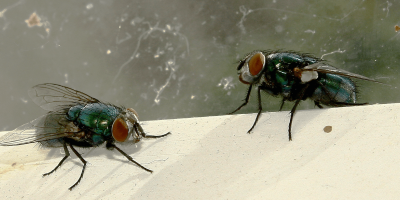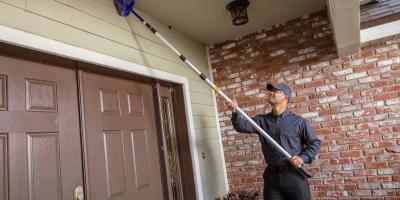What Types Of Audits Can Your Restaurant Or Food Processing Facility Expect In Pest Control Areas?

As the owner or manager of a restaurant or food-processing facility, you should understand how to prepare for a number of industry-specific audits. Pest control audits are particularly important for any business that deals with food meant for human consumption, due to safety regulations and sanitation concerns. The following are examples of audits that you may be faced with at some point.
Internal Audits
Internal audits may not always be a requirement for your food-processing business or restaurant, but they will help you prepare for a third-party audit. Internal audits allow your business to check whether you are meeting different regulations, including pest control. They also allow for evaluating the risks pests could pose to your business. Many professional third-party audits require proof of an internal audit. Rather than thinking of an internal audit as a time-consuming task to check off your list, you can view this “introspection” as an opportunity to correct any pest-related errors before they worsen. Internal audits also allow you to show third-party auditors that your company makes ongoing improvements when possible. For best results, you may want an unbiased assessment provided by a third-party auditor.
Third-Party Audits
The majority of audits for your restaurant or processing facility will be performed by a third-party. A third-party organization completes these audits on behalf of another party. The auditor will commonly conduct the audit on behalf of a food inspection agency or a client in order to verify the business complies with a vendor’s program requirements.
Health Inspector Audits
Health inspector audits are probably the most feared within the food industry. They may sometimes involve an FDA certified food and health inspector. In many cases, however, a third party will conduct the inspection for the regulatory agency in your area. These inspections tend to be the most challenging and penalizing, since infractions during this particular audit can lead to fines or forced closures.
Client Audits
A client of your company may also schedule a third-party audit. If, for example, your meat-processing plant supplies the meat for a particular restaurant or butcher, that company may ask to send a third party to conduct an audit. This allows the client to ensure that the products meet or exceed their requirements.
Common Standards
Most audits will conform to one of two standards: the BRC (British Retail Consortium) or the SQF (Safe Quality Food Program). The BRC standards are more specific than those of the SQF; the BRC also requires pest control program reviews by senior management and detailed quality management systems, and it specifically outlines the ideal practices.
Always Be Prepared
Audits may be openly scheduled or unannounced, so you should be prepared for a surprise audit at any given moment. Keep your paperwork, logbooks and documentation readily available and up-to-date at all times. Your pest control provider should maintain an audit-ready logbook that is kept on-site.
When an audit is planned, take the opportunity to make additional preparations. If there is time, have your pest management professional conduct an inspection so you can make last-minute changes if necessary. Double-check that all paperwork and pest management device maps are up to date in your logbook. Working alongside your pest control provider will help ensure you pass your next audit without stress or worry.
Concerned about industry audits? Contact JP Pest Services to request a free commercial consultation today! Our service professionals understand the specific requirements to keep New England businesses up to industry standards, and are dedicated to solving your pest control problems.



